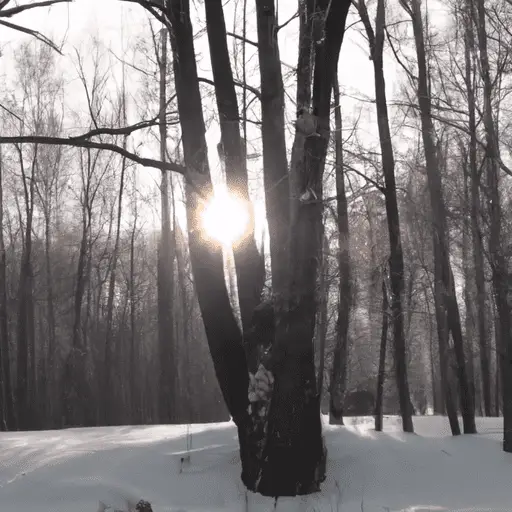The Surprising Health Risks of Winter: Snow, Sun, and Skin Cancer
-
Table of Contents
- The Surprising Health Risks of Winter: Snow, Sun, and Skin Cancer
- Key Takeaways
- Introduction: Unveiling the Hidden Dangers of Winter Sun
- The Deceptive Winter Sun and UV Radiation
- Snow: The Silent Amplifier of UV Radiation
- The Neglected Sun Protection in Winter
- Preventive Measures: Your Shield Against Winter Sun
- FAQ Section
- 1. Can you get sunburned in winter?
- 2. Is winter sun more dangerous than summer sun?
- 3. Do I need to wear sunscreen in winter?
- 4. What is snow blindness?
- 5. How can I protect my skin in winter?
- Conclusion: Winter Sun – A Hidden Threat to Skin Health
- Key Takeaways Revisited
The Surprising Health Risks of Winter: Snow, Sun, and Skin Cancer

[youtubomatic_search]
Key Takeaways
- Winter sun can be as harmful as summer sun in terms of UV radiation exposure.
- Snow can reflect up to 80% of UV radiation, increasing the risk of skin damage and skin cancer.
- People often neglect sun protection in winter, leading to increased risk of skin cancer.
- Preventive measures like wearing sunscreen, protective clothing, and sunglasses are essential even in winter.
- Regular skin checks are crucial for early detection of skin cancer.
Introduction: Unveiling the Hidden Dangers of Winter Sun
When we think of winter, we often imagine cozy sweaters, hot chocolate, and snowball fights. Rarely do we associate it with sunburns and skin cancer. However, the reality is that winter sun can be as harmful as summer sun, if not more. This article delves into the surprising health risks associated with winter, particularly the increased risk of skin cancer due to snow and sun.
The Deceptive Winter Sun and UV Radiation
Contrary to popular belief, the winter sun can emit the same amount of harmful ultraviolet (UV) radiation as the summer sun. According to the World Health Organization, UV radiation levels can be high even on cloudy days. This is because UV radiation penetrates clouds and can reach the earth’s surface, posing a risk to our skin health.
Snow: The Silent Amplifier of UV Radiation
Snow acts as a mirror, reflecting up to 80% of UV radiation, according to the Skin Cancer Foundation. This means that when you’re out in the snow, you’re exposed to almost double the amount of UV radiation. This reflected radiation can cause “snow blindness” and severe sunburn, increasing the risk of skin cancer.
The Neglected Sun Protection in Winter
Most people associate sun protection with summer and often neglect it in winter. A study published in the Journal of the American Academy of Dermatology found that only 20% of participants used sunscreen in winter months. This lack of protection can lead to cumulative UV damage, contributing to the development of skin cancer.
Preventive Measures: Your Shield Against Winter Sun
Preventive measures are crucial in winter to protect against UV radiation. These include applying a broad-spectrum sunscreen with an SPF of 30 or higher, wearing protective clothing and sunglasses, and seeking shade whenever possible. Regular skin checks are also essential for early detection of skin cancer.
FAQ Section
1. Can you get sunburned in winter?
Yes, you can get sunburned in winter. The UV radiation from the winter sun, combined with the reflection from the snow, can cause sunburn.
2. Is winter sun more dangerous than summer sun?
Winter sun can be as dangerous as summer sun in terms of UV radiation exposure. The risk can be higher in winter due to the reflection of UV radiation from the snow.
3. Do I need to wear sunscreen in winter?
Yes, it’s important to wear sunscreen in winter to protect your skin from UV radiation. Choose a broad-spectrum sunscreen with an SPF of 30 or higher.
4. What is snow blindness?
Snow blindness is a temporary loss of vision due to overexposure to the sun’s UV radiation reflected off the snow. It can cause pain, redness, blurred vision, and sensitivity to light.
5. How can I protect my skin in winter?
You can protect your skin in winter by applying sunscreen, wearing protective clothing and sunglasses, and seeking shade whenever possible. Regular skin checks are also important.
Conclusion: Winter Sun – A Hidden Threat to Skin Health
Winter sun, often overlooked, poses a significant threat to our skin health. The combination of direct and reflected UV radiation from the sun and snow can lead to skin damage and increase the risk of skin cancer. Despite the cold temperatures, sun protection should not be neglected in winter. By taking preventive measures and conducting regular skin checks, we can protect our skin and ensure its health, regardless of the season.
Key Takeaways Revisited
- Winter sun can be as harmful as summer sun due to UV radiation exposure.
- Snow reflects up to 80% of UV radiation, increasing the risk of skin damage and skin cancer.
- Sun protection is often neglected in winter, leading to increased risk of skin cancer.
- Preventive measures like sunscreen, protective clothing, and sunglasses are essential in winter.
- Regular skin checks are crucial for early detection of skin cancer.
[youtubomatic_search]


